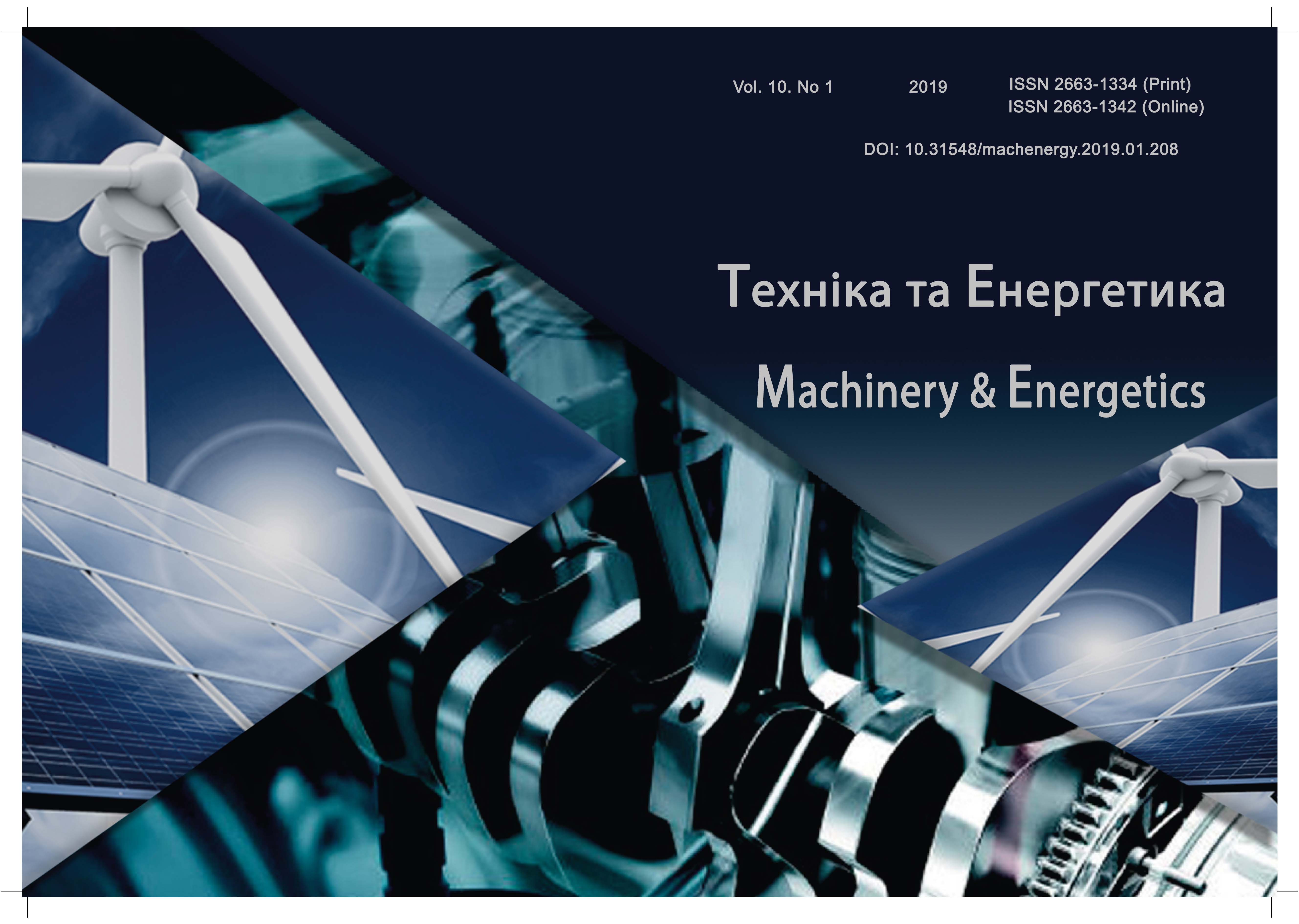Investigation of process of biodiesel production from technical fats
DOI:
https://doi.org/10.31548/machenergy2019.01.159Keywords:
biodiesel, technical animal fats, raw materials, esterification, separation, transesterification, alternative energy resources, production technology, standard.Abstract
Pre-cleaned technical animal fats are harmful to health, as they are not environmentally friendly and not suitable for recycling. The best solution is to use them for industrial purposes, namely the conversion to biodiesel. The purpose of this study is to improve the technology for the production of biodiesel from industrial animal fats under laboratory conditions and to conduct tests on the obtained samples. The most important operations of the process of obtaining biodiesel from animal waste fats are considered. The influence of the quality of fatty raw materials on the composition of liquid biodiesel has been evaluated and initial requirements for raw materials have been developed. It has been established that the moisture content of the raw material has a decisive influence on the mechanism of the transesterification of triglycerides into fatty acid methyl esters, which, according to their performance, are close to petroleum diesel fuel. Free fatty acids in raw materials in combination with water make the process ineffective. As a result of scientific research, the technology of production of biodiesel from waste vegetable oils and animal fats has been substantiated and its hardware has been proposed. According to the results of laboratory studies, the possibility of obtaining a quality product that meets modern operational requirements for biodiesel, which can be used in engines without significant re-equipment, is established.References
Malyarenko, V. A., Yakovlev, A. I. (2016). Biodiesel-alternative to diversification of motor fuels. Energy saving. Power engineering. Energy audit. №. 3. 64-73.
Sukhenko, Yu., et al. (2017). Changing the quality of ground meat for sausage products in the process of grinding. Eastern European Journal of Enterprise Technologies. 2017. Vol. 4. 11 (88), 56-63. https://doi.org/10.15587/1729-4061.2017.108876
Kovalenko, G. A., et al. (2015). Heterogeneous biocatalysts for transesterification of vegetable fat triglycerides into valuable oil and fat products and biodiesel. Biotechnology: the state and prospects of development. 351-352.
Rudnev, V. A., Maslov, I. V., Eliseev, V. V. (2018). Analysis of the possibility of using biofuels from vegetable oils. Actual problems and prospects of development of construction, heat supply and power supply. 107-110.
DSTU 6081:2009. Documentation - Presentation of theses and similar documents.
EN 14214:2003. Documentation - Presentation of theses and similar documents
Mushtruk, M. M. (2014). Grounding the characteristics of equipment for the production of liquid biofuels from technical animal fats. Kyiv, 234.
Zhu, L. D., Li, Z. H., Hiltunen, E. (2016). Strategies for lipids production improvement in microalgae as a biodiesel feedstock. BioMed research international. 23 - 29.
https://doi.org/10.1155/2016/8792548
Kapor N. Z. et al. (2017). Palm fatty acid distillate as a potential source for biodiesel production-a review. Journal of cleaner production. Vol. 143. 1-9. https://doi.org/10.1016/j.jclepro.2016.12.163
Mushtruk M. M., Sukhenko V. Y., Sukhenko Y. G. (2016). Biodiesel production and properties: monograph / Ed. by doc. of Tech Sc V.Y. Sukhenko. Kyiv: CP "Komprint", 252.
Downloads
Published
Issue
Section
License
Relationship between right holders and users shall be governed by the terms of the license Creative Commons Attribution – non-commercial – Distribution On Same Conditions 4.0 international (CC BY-NC-SA 4.0):https://creativecommons.org/licenses/by-nc-sa/4.0/deed.uk
Authors who publish with this journal agree to the following terms:
- Authors retain copyright and grant the journal right of first publication with the work simultaneously licensed under a Creative Commons Attribution License that allows others to share the work with an acknowledgement of the work's authorship and initial publication in this journal.
- Authors are able to enter into separate, additional contractual arrangements for the non-exclusive distribution of the journal's published version of the work (e.g., post it to an institutional repository or publish it in a book), with an acknowledgement of its initial publication in this journal.
- Authors are permitted and encouraged to post their work online (e.g., in institutional repositories or on their website) prior to and during the submission process, as it can lead to productive exchanges, as well as earlier and greater citation of published work (See The Effect of Open Access).

